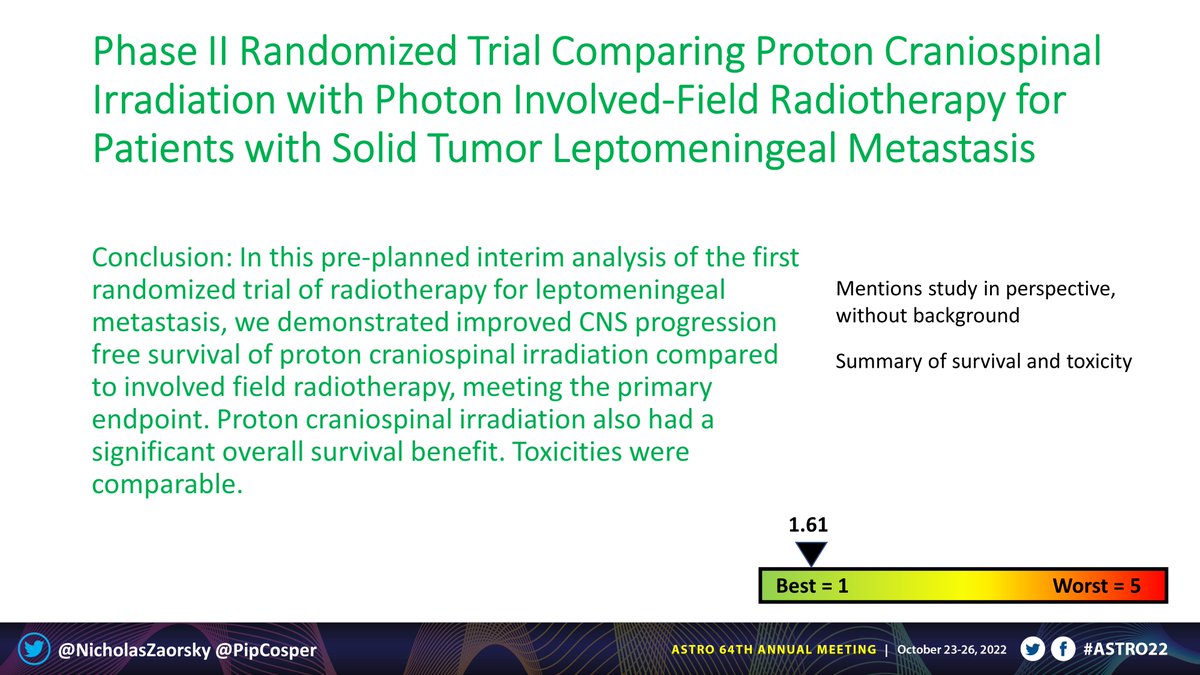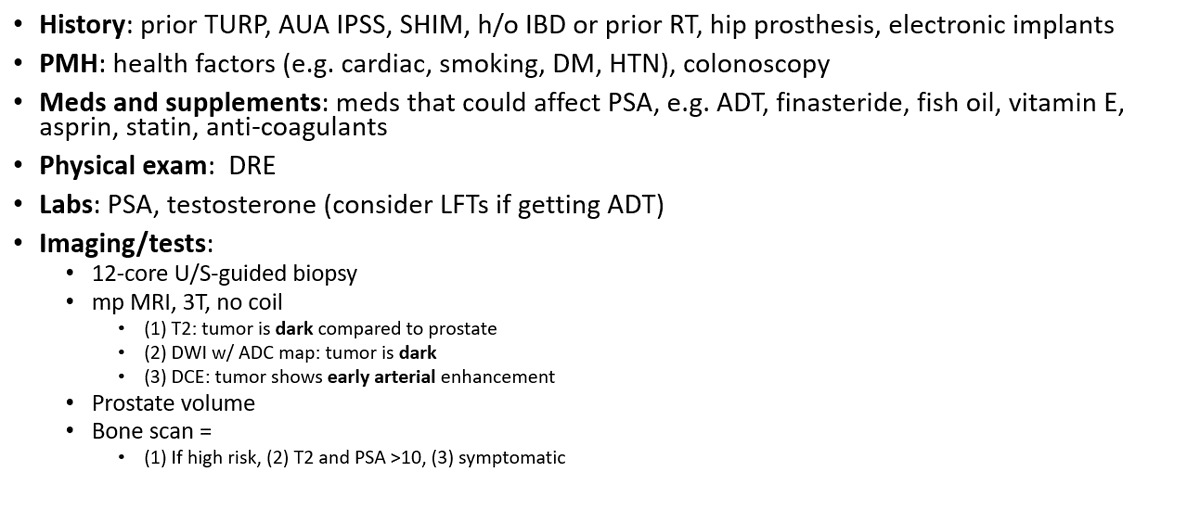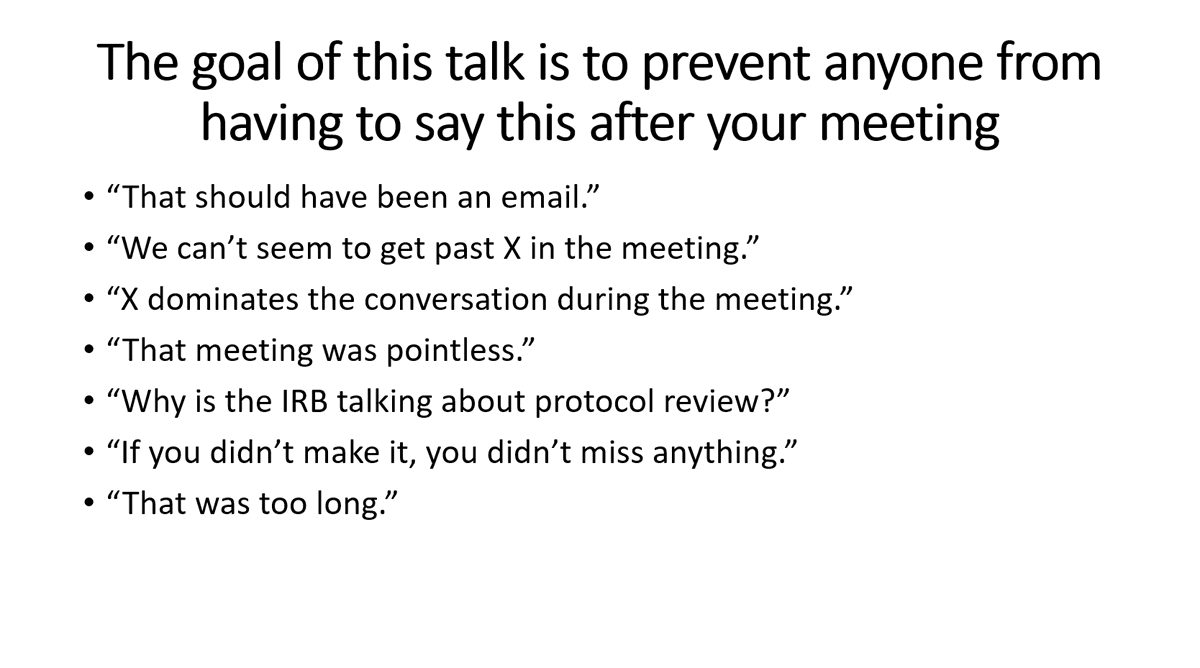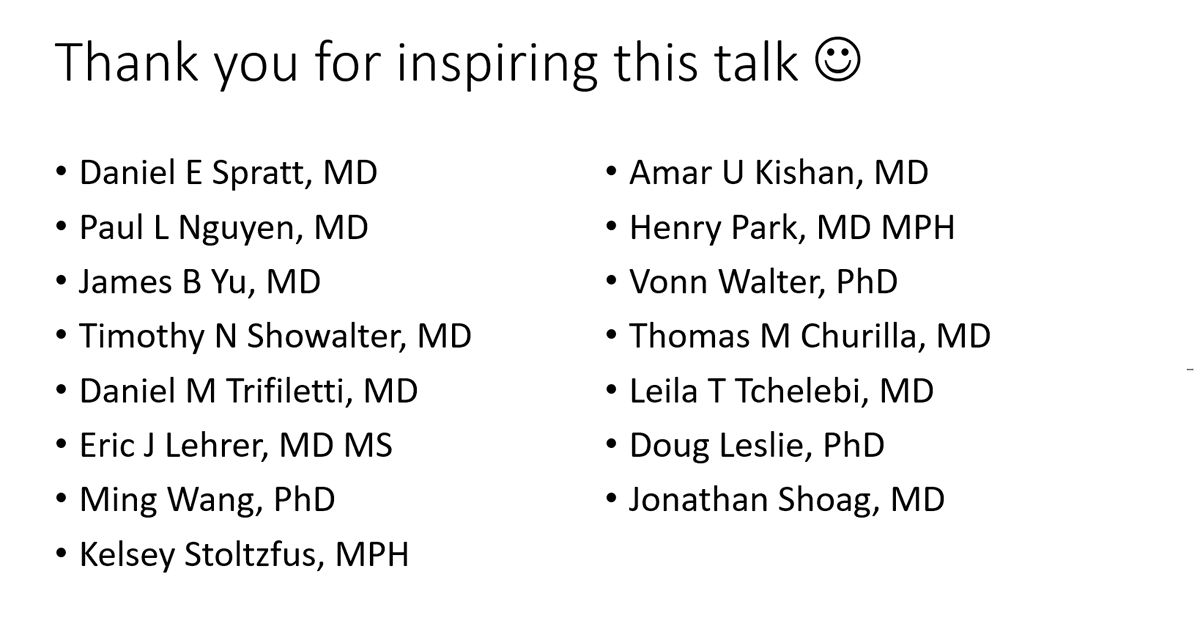
How to write a research abstract for presentation at a meeting
Presented at #ASTRO22 @ASTRO_org
@pipcosper #radonc
Tweetorial 🧵
Presented at #ASTRO22 @ASTRO_org
@pipcosper #radonc
Tweetorial 🧵
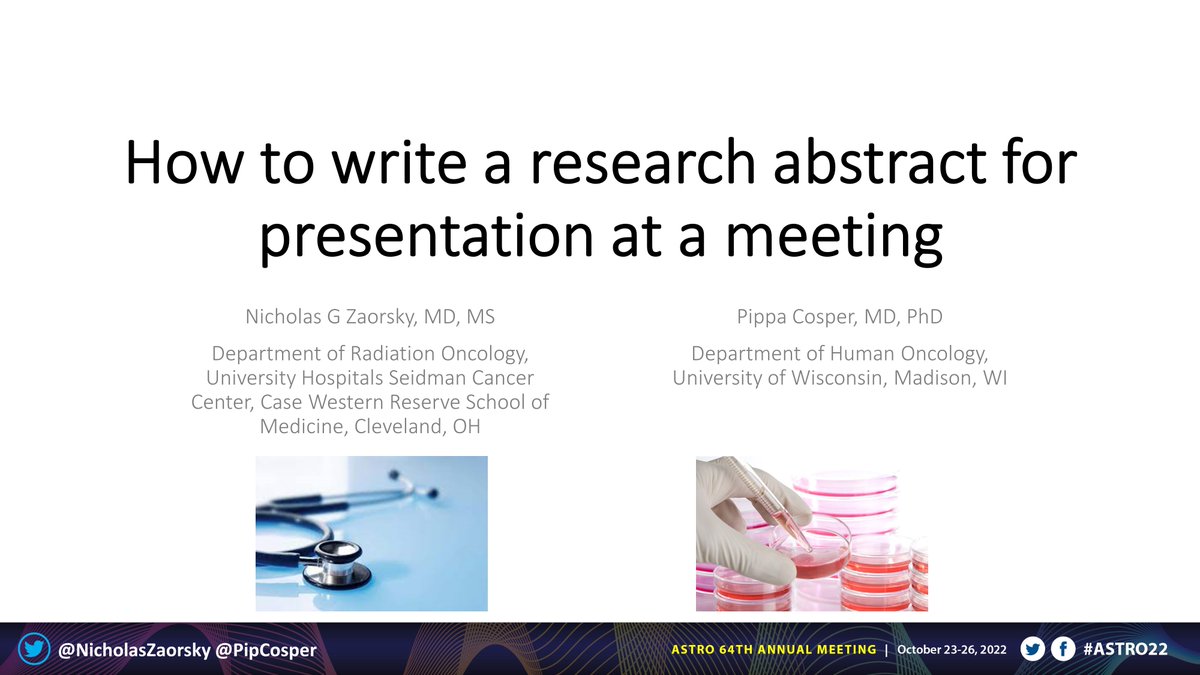
This thread will review the key components of each abstract section and provide examples of some of the highest scored abstracts at #ASTRO22
Since our Twitter audience is diverse, I will also highlight key features in recent @NEJM NordICC abstract:
nejm.org/doi/full/10.10…

Since our Twitter audience is diverse, I will also highlight key features in recent @NEJM NordICC abstract:
nejm.org/doi/full/10.10…


The intro section should provide:
1, pertinent background
2, purpose with hypothesis (if applicable)
Often, the background is already known to content experts in your medical specialty and can be omitted.



1, pertinent background
2, purpose with hypothesis (if applicable)
Often, the background is already known to content experts in your medical specialty and can be omitted.




The methods section provides details on what was done to address the purpose
If you have a clinical study, consider mentioning the PICOS criteria


If you have a clinical study, consider mentioning the PICOS criteria



One caveat: retrospective comparative effectiveness research should not be used to address questions reserved for randomized trials.
For @ASTRO_org meeting, reviewers are instructed to give retrospective CER (eg, w SEER, NCDB) worse scores.
For @ASTRO_org meeting, reviewers are instructed to give retrospective CER (eg, w SEER, NCDB) worse scores.
https://twitter.com/NicholasZaorsky/status/1494072031104618501
The results section is the most important part of the abstract.
Try to pack this section with numbers.


Try to pack this section with numbers.



NordICC has a short conclusion, though there is much to unpack.
Interesting discussion from the first author and @VPrasadMDMPH:

Interesting discussion from the first author and @VPrasadMDMPH:

Thanks to these experts for improving our work
@DrSpratticus @felixfengmd @cwspeers @KimpleRandall @mwang_cwru @yilun_sun @EricLehrer @Samuel_Bakhoum @LeilaTchelebi @DrPaulNguyen
Thanks to @ARRO_org @ASTRO_org for the invitation to present at #ASTRO22
@DrSpratticus @felixfengmd @cwspeers @KimpleRandall @mwang_cwru @yilun_sun @EricLehrer @Samuel_Bakhoum @LeilaTchelebi @DrPaulNguyen
Thanks to @ARRO_org @ASTRO_org for the invitation to present at #ASTRO22

For related works, see this list of tweetorials: docs.google.com/document/d/19y…
• • •
Missing some Tweet in this thread? You can try to
force a refresh














